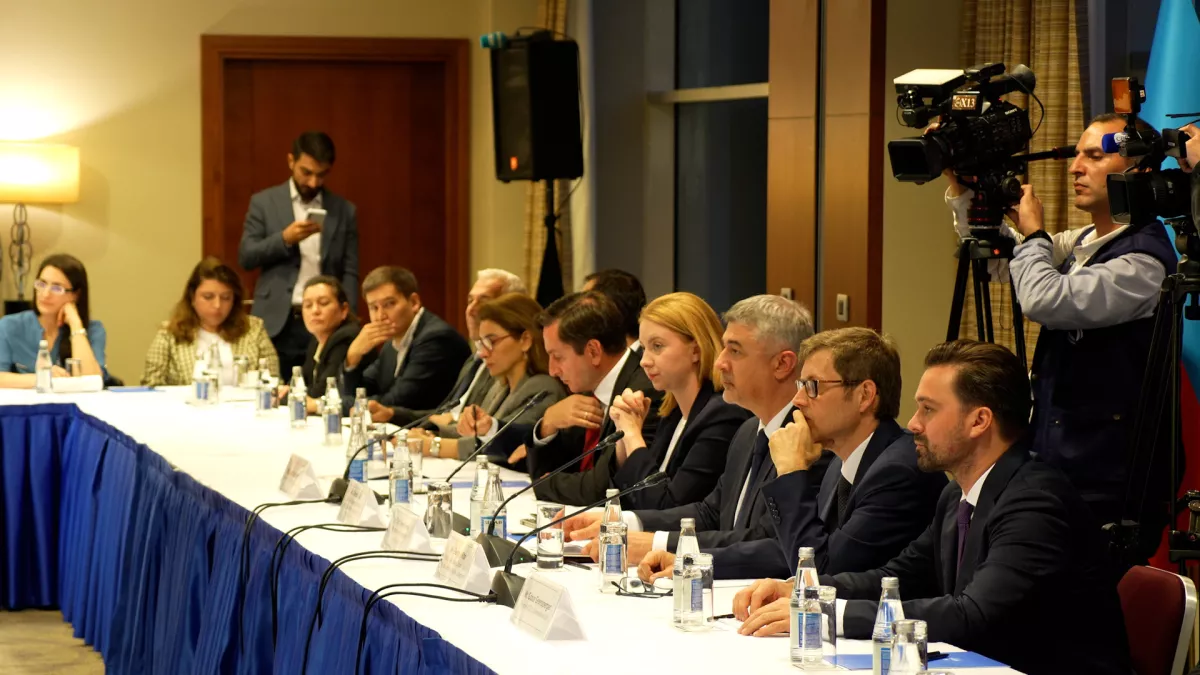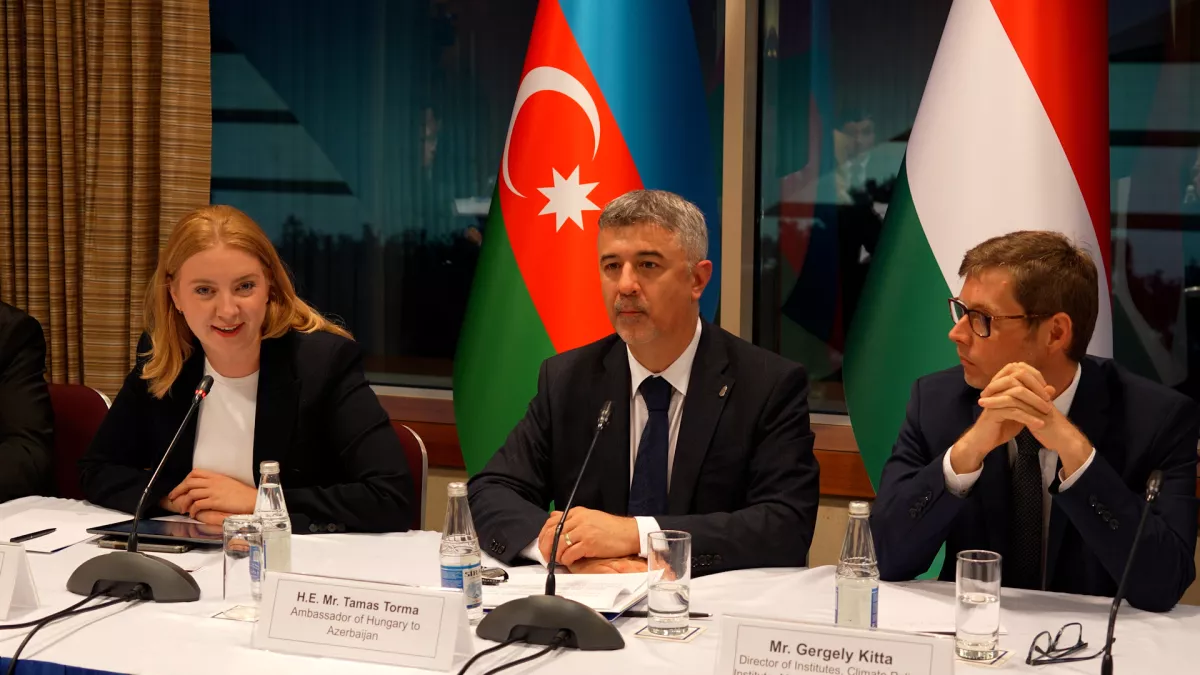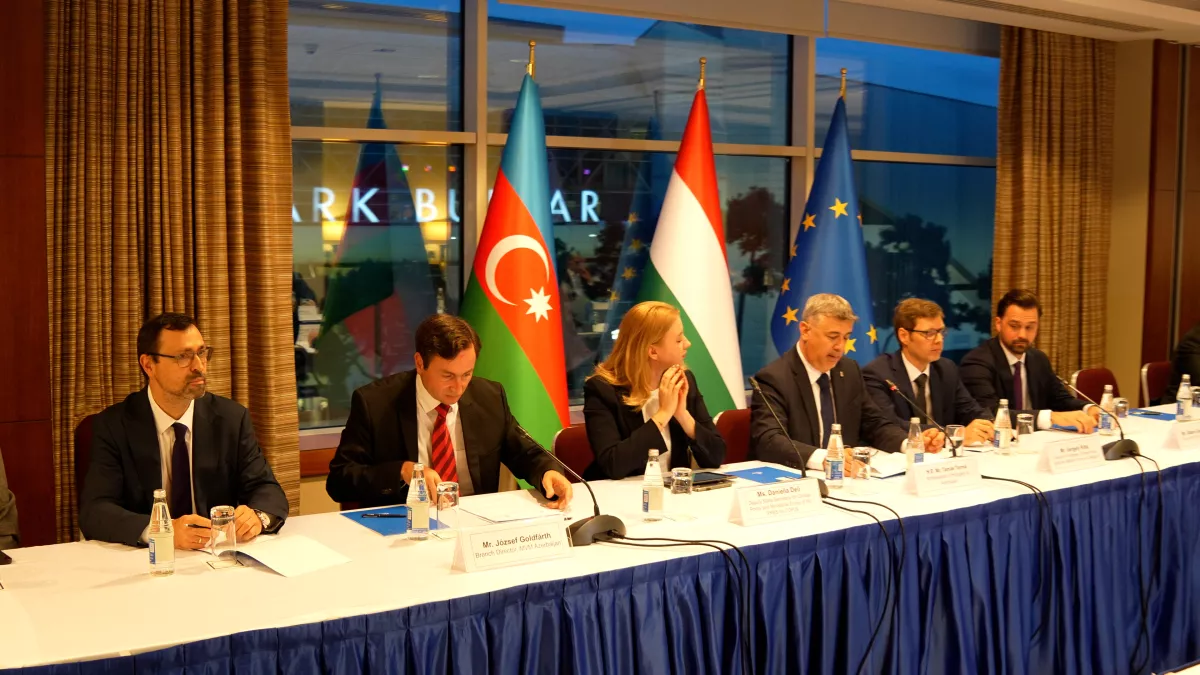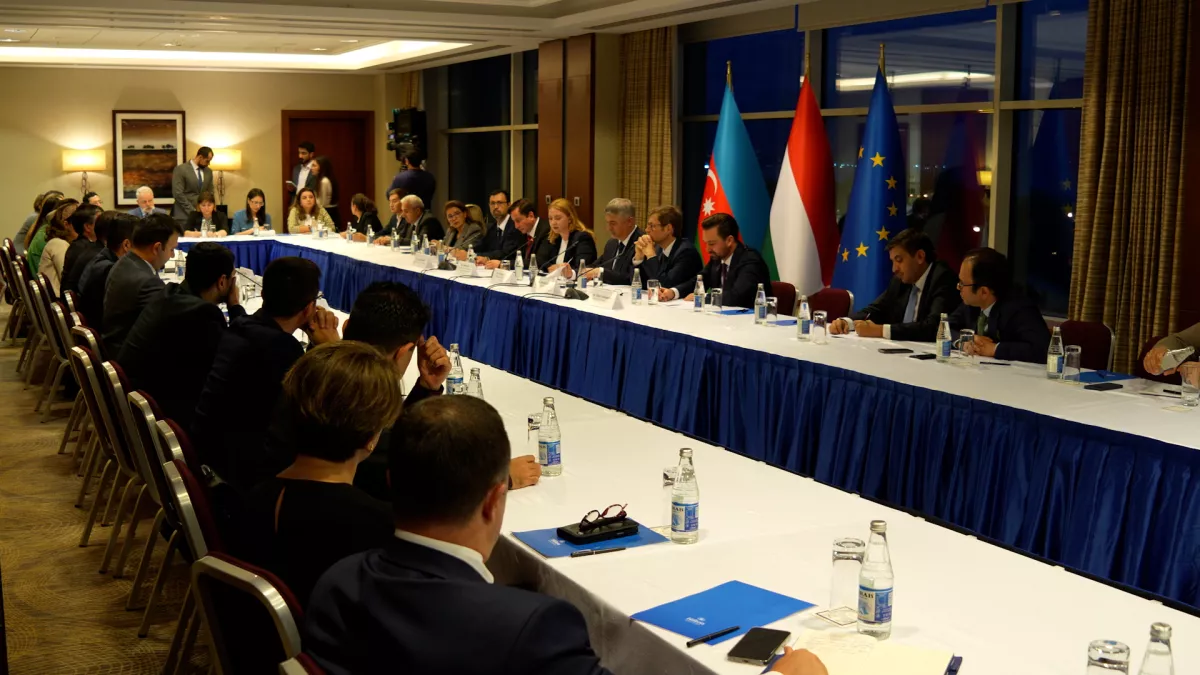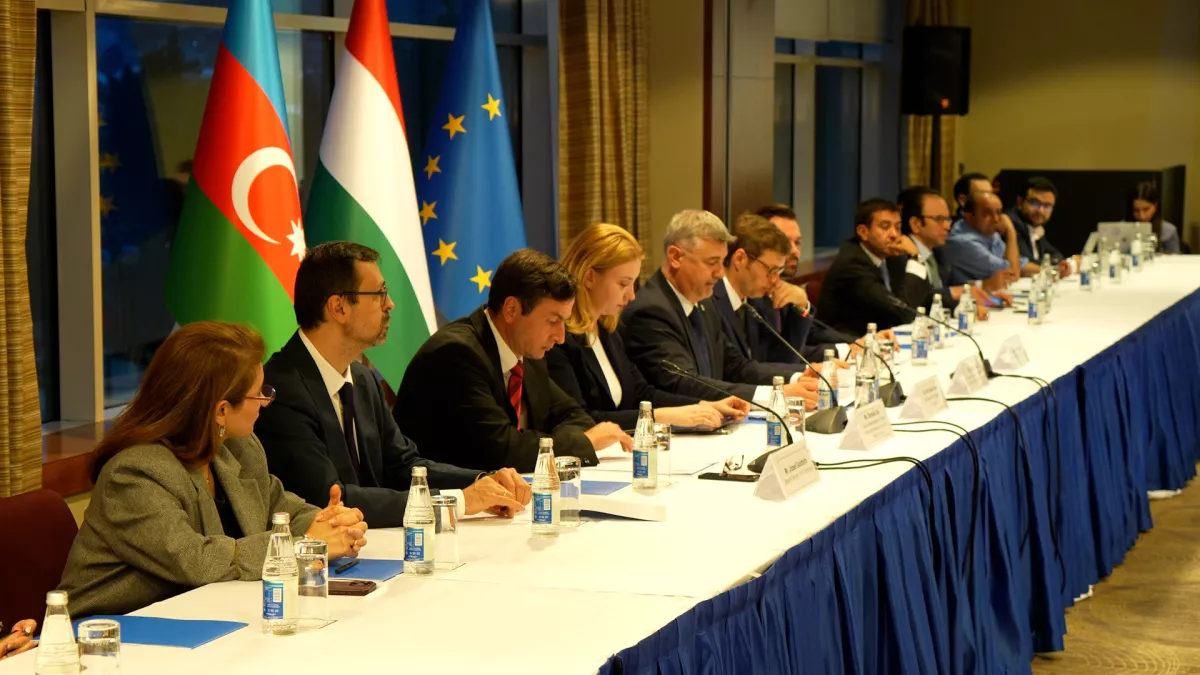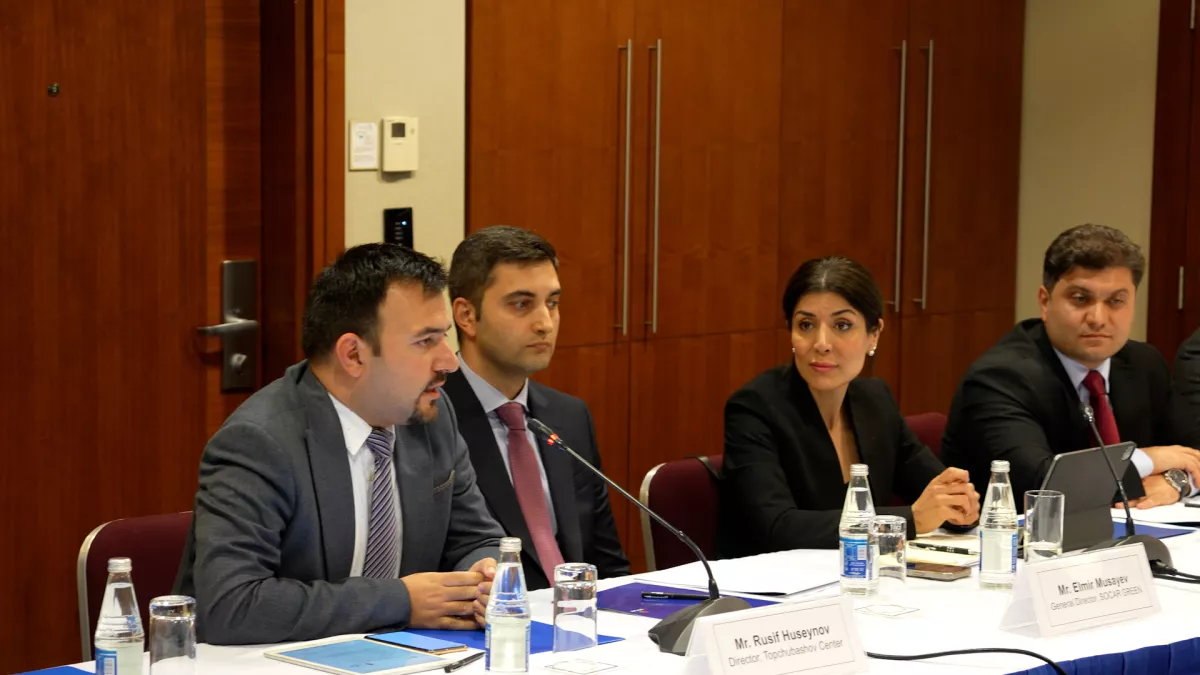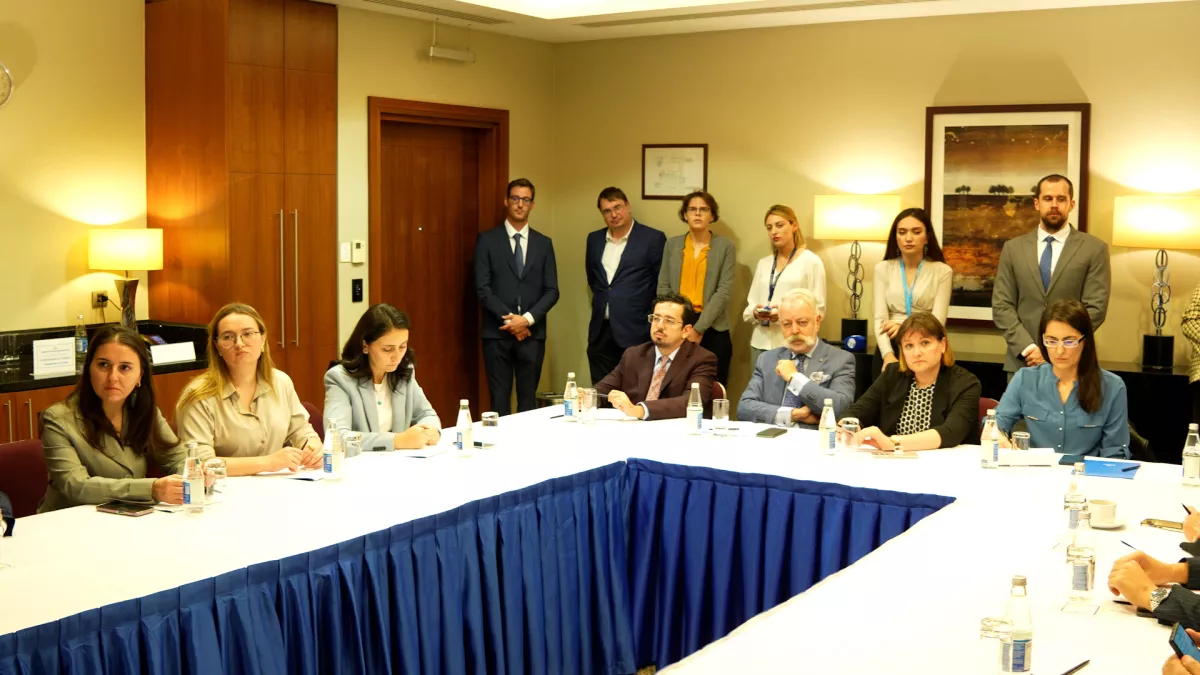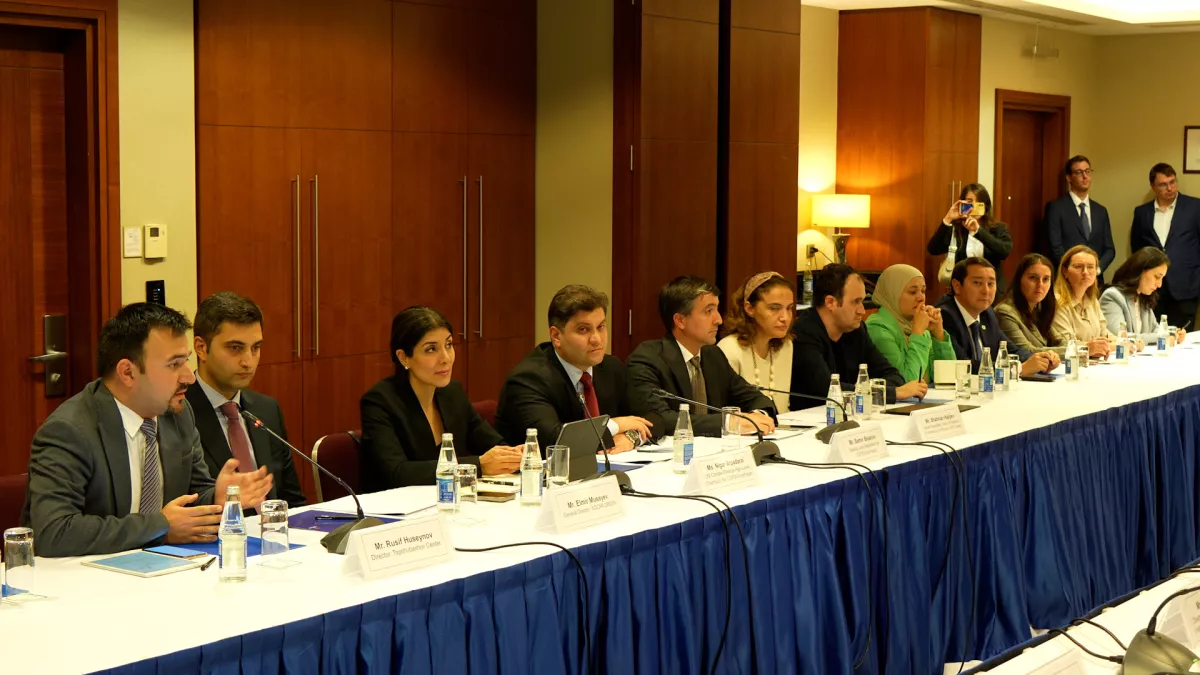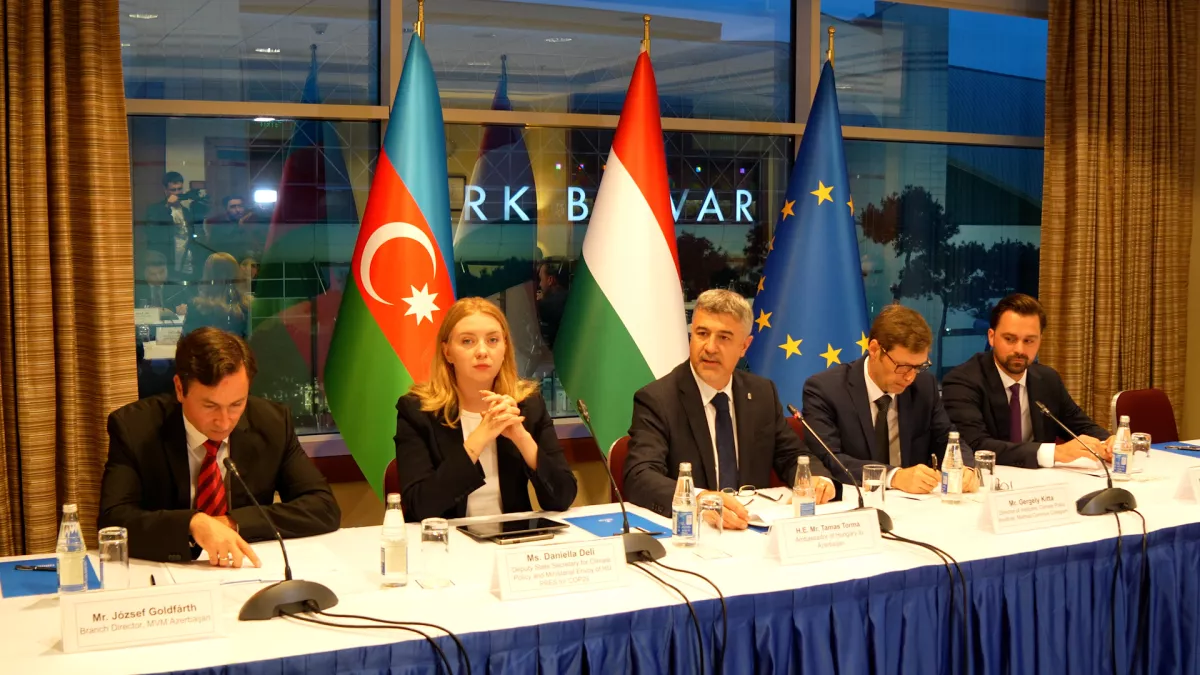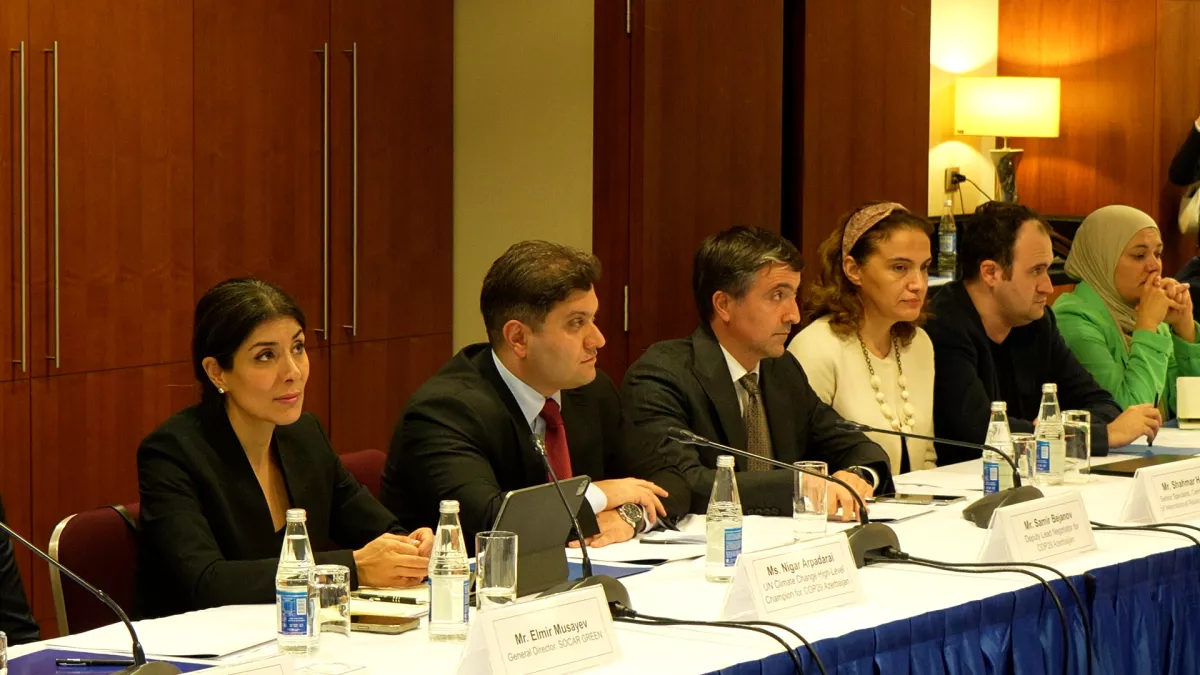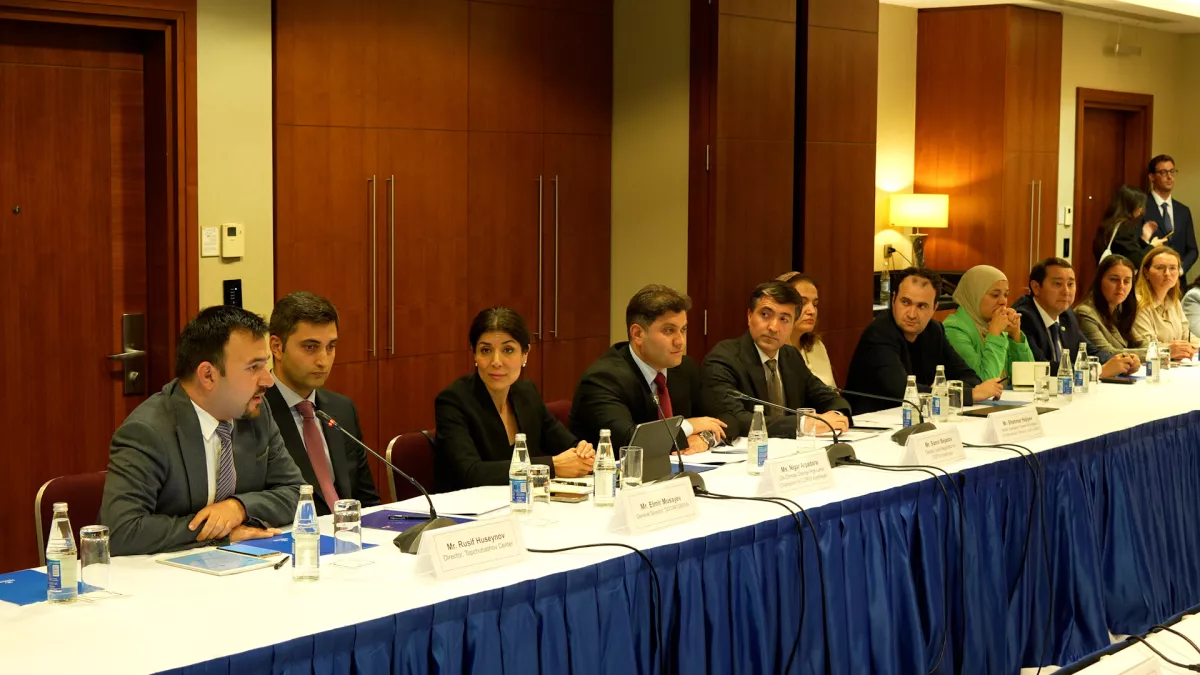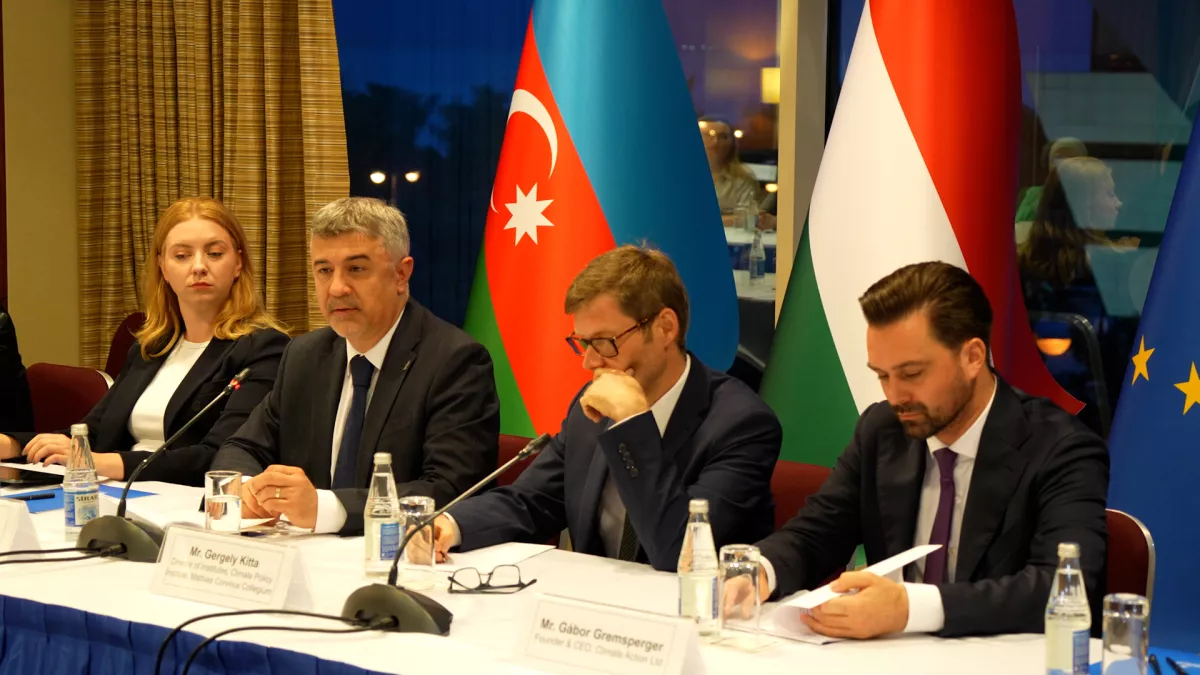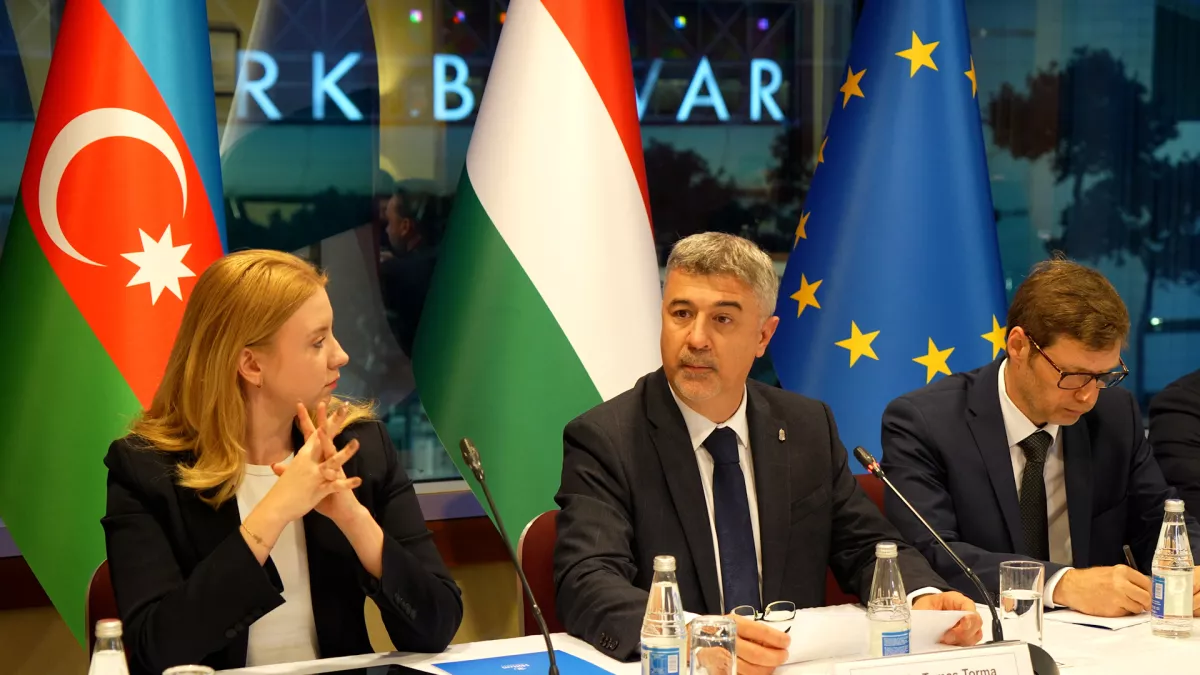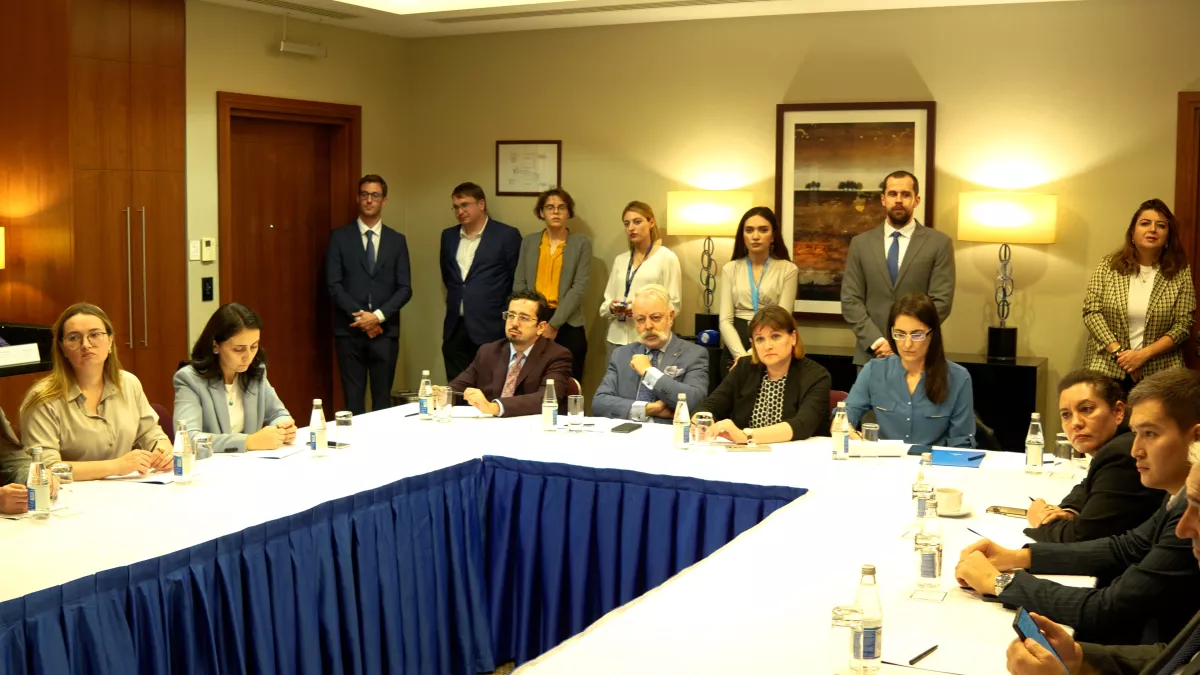Azerbaijan, Hungary join forces for green transition in COP29 talks PHOTO
On October 11, a roundtable discussion titled "Green Transition and Climate Change: Theoretical and Practical Approaches Towards COP29" was held in Baku, jointly organized by the Hungarian Embassy in Azerbaijan and the Topchubashov Analytical Center.
The event, a prelude to the upcoming COP29 climate summit set to take place in Baku, attracted government officials and experts from both Azerbaijan and Hungary to exchange views on climate initiatives and green energy solutions, Caliber.Az reports.
In his opening remarks, Hungarian Ambassador to Azerbaijan Tamás Torma emphasized the deepening friendship between the two countries and Azerbaijan’s growing significance as a key energy partner for Europe. Torma praised Azerbaijan’s commitment to green energy, which will take center stage during COP29, one of the world’s largest climate change events.
The discussions were moderated by Rusif Huseynov, Director of the Topchubashov Center, and featured prominent Azerbaijani speakers. Nigar Arpadarai, the UN High-Level Climate Champion for Climate Change, outlined Baku's ambitious goals for COP29, underscoring the importance of hosting such a pivotal event. Samir Bejanov, Azerbaijan’s Deputy Chief Negotiator for COP29, elaborated on the country’s climate finance principles, which focus on supporting sustainable development for emerging economies. Elmir Musayev, CEO of "SOCAR Green," discussed SOCAR’s domestic and international green initiatives and outlined the company’s long-term strategy to reach net-zero emissions by 2050. Shahmar Hajiyev, Senior Advisor at the Center for Analysis of International Relations, highlighted the necessity of communicating Azerbaijan’s COP29 agenda to a global audience.
From the Hungarian side, Daniella Deli, Deputy State Secretary for Climate Policy and Special Envoy for COP29 under Hungary’s EU presidency, commended Azerbaijan’s plans to establish itself as a regional hub for sustainable development and green energy. She also shared Hungary's success in diversifying its energy sources. József Goldfarth, representative of Hungary's major energy company "MVM" in Azerbaijan, shed light on the joint "Green Corridor" project initiated by both countries. Additionally, Gergely Kitta, Director of the Climate Policy Institute at Mathias Corvinus Collegium, and Gábor Gremsperger, head of Climate Action company, underscored the vital role educational institutions and the private sector play in advancing the green energy transition.
As Baku gears up to host COP29, the roundtable highlighted the growing collaboration between Azerbaijan and Hungary, with both nations poised to make significant contributions to global climate change efforts.




